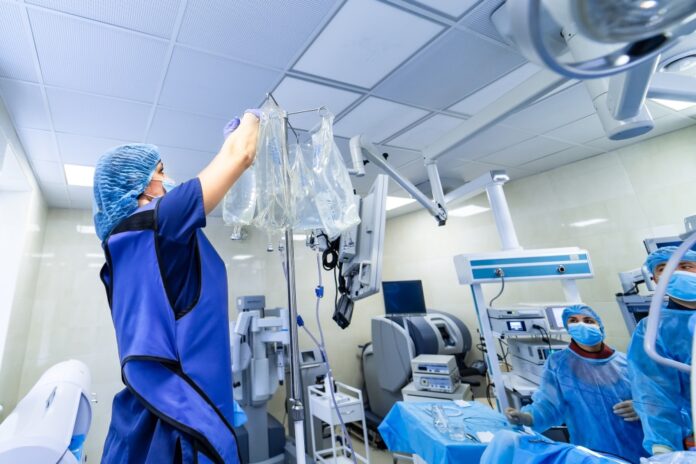61% of NHS staff believe new technologies could enable treatment for an additional 18.6 million patients annually
Digital tools are vital for supporting frontline staff and ensuring a resilient National Health Service (NHS) in the UK. Embracing innovations across the healthcare system can drive efficiencies and improve the delivery of patients’ care.
In fact, 61% of NHS staff believe new technologies could enable treatment for an additional 18.6 million patients annually, according to Virgin Media O2 Business’ Bridging the Digital Gap in UK Healthcare report.
To achieve this, healthcare professionals must collaborate closely with core connectivity and technology suppliers to build the necessary infrastructure for their digital transformation efforts. The tech and telecoms sector are instrumental in this change, providing secure, integrated, and care-ready connectivity solutions.
Boosting frontline support
We have seen several new technologies emerge that have significantly transformed healthcare. Internet of Things (IoT) powered devices, such as fitness trackers, have proven invaluable, enabling healthcare professionals to monitor patients’ vital signs in real-time and detect potential health issues early on.
Beyond wearable devices, IoT technology facilitates remote monitoring for patients with chronic conditions, allowing patients to track and send their data from home. This reduces the need for frequent hospital visits, allowing healthcare professionals to review the data and intervene as necessary – all without occupying hospital beds or increasing wait times.
5G observations
The 5G-connected e-observations (eObs) app is another example, allowing clinical staff to update patient records and make live observations all via handheld devices. The high-speed platform keeps healthcare professionals connected in real-time without relying on a hospital Wi-Fi networks.
These digital innovations, with their high throughput and low latency, improve the efficiency of daily operations, making healthcare services smarter, more accurate, and more effective. As many as 86% of NHS staff reported that IoT devices helped reduce frontline staff workload and decreased patient waiting times.
Almost two fifths (38%) of healthcare workers surveyed, ranging from clinical to admin and IT roles, believe that these tech improvements could increase patient consultations by at least 5%, potentially helping up to 31 million* additional people annually.
Holistic care through sharing data
The introduction of Integrated Care Systems (ICSs) across England in 2022 marked a big step towards holistic patient care. ICSs enable effective communication and real-time data sharing between staff across different locations, standardising digital practices and promoting best practices across regions. Nonetheless, there is ample scope for technology to improve operational efficiencies for patients and staff.
While data sharing across GP surgeries, hospitals, and all touch points is critical, it’s important to ask: what does true digital integration look like?
One way to achieve this is by building a culture of digital integration within organisations. Technologies like unified communications (UC) and cloud-based storage can bring data closer to the staff and patients who need it.
Healthcare professionals should collaborate with trusted digital partners to map out the necessary infrastructure and tools to support their data ambitions and explore how their existing systems are being used.
Breaking down barriers to tech adoption
Overhauling legacy systems can be challenging and disruptive, with 41% of healthcare decision makers citing resistance to change as a significant barrier to tech adoption. Coupled with concerns about maintaining the same standard of care with new solutions, it can leave healthcare professionals feeling overwhelmed.
By working closely with technology suppliers, healthcare professionals can prioritise and optimise their current tech stack, identifying where existing technology can be better utilised and upskilling staff on existing tools. Adopting cloud-based SD-WAN infrastructure and cybersecurity solutions can also provide substantial benefits.
However, for technology to be effective, people need to be well-equipped to maximise these tools. Digital skills are crucial for productivity and efficiency, and healthcare providers should seek support from their tech partners, including onboarding, tailored transition support, and dedicated account teams for troubleshooting.
Promoting positive tech dialogue and hands-on experience with new solutions can help staff understand how improved tech leads to better patient outcomes.
A future-ready NHS
As the NHS continues to evolve and innovate, the speed of technological advancement will only increase. To keep up, healthcare professionals must focus on integrating tools, maintaining transparent communication, and strategically investing in technology.
Embracing these changes will make the NHS future-ready, leveraging technology to better support patients, streamline delivery of care and improve outcomes across the board.
The author
Martin McFadyen is Director of Public Sector at Virgin Media O2 Business



